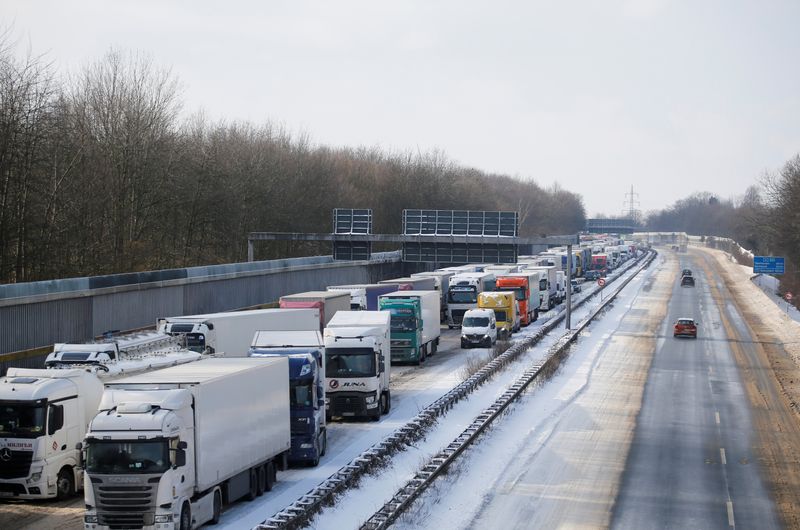By Kate Abnett
BRUSSELS (Reuters) -The European Commission on Tuesday proposed tougher CO2 limits for heavy goods vehicles, requiring new trucks by 2040 to cut emissions by 90% and all new city buses to have zero emissions from 2030.
The aim is to align the transport sector with the European Union's goal to achieve zero net greenhouse gas emissions by 2050, as well as to reduce demand for imported fossil fuels.
Already last year, the 27-nation bloc agreed a 2035 deadline for new cars to be CO2-free.
The Commission proposed on Tuesday that from 2040, manufacturers would need to reduce the average CO2 emissions of the new trucks they sell by 90% compared with 2019 levels.
They would also face a 65% CO2 cut from 2035 and a 45% cut from 2030.
The 90% target falls short of the zero emissions goal that countries including the Netherlands sought, although some EU countries - which must negotiate the final law with the European Parliament - have said zero emissions by 2040 is too soon for manufacturers.
EU climate policy chief Frans Timmermans said the bloc had not proposed a 100% emissions cut because of uncertainty about when zero-emission technologies will be available for all trucks, including those in challenging driving conditions such as mountainous terrain.
"We will eventually have to move to a 100% target," he added.
The proposal disappointed campaigners, who said new CO2-emitting trucks registered in 2040 would still be on the road in 2050 - thwarting the bloc's net zero deadline.
"Polluting trucks will continue to be sold for years longer than necessary, making the EU's net zero goal impossible," said Fedor Unterlohner, freight manager at campaign group Transport & Environment.
Trucks in the EU were, on average, 14 years old in 2020, according to data published last year by the European Automobile Manufacturers' Association.

Swedish truck maker AB Volvo started series production of heavy electric trucks last year, and aims for half of its global truck deliveries to be electric by 2030.
Other routes to decarbonise trucks include hydrogen fuel cells, although their availability is currently limited.